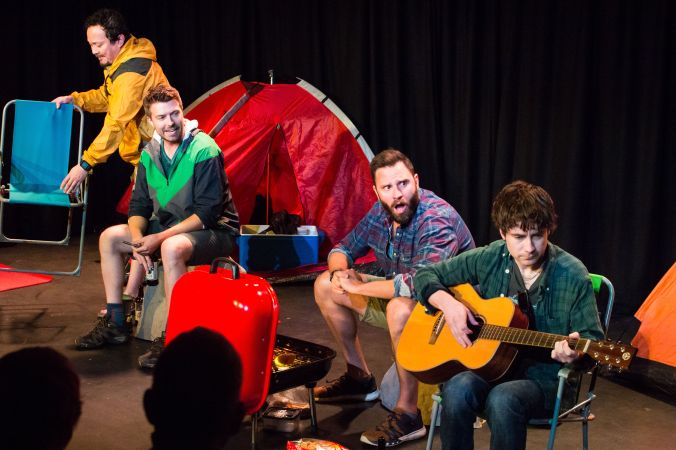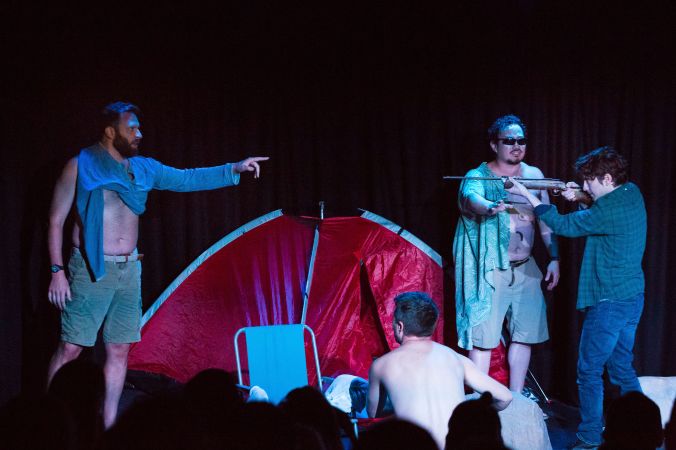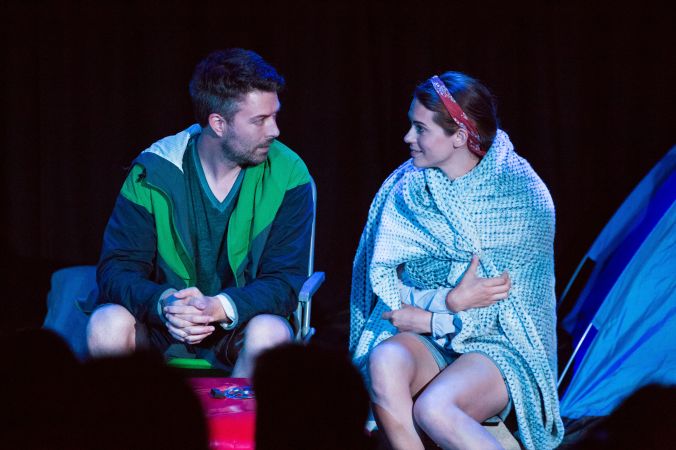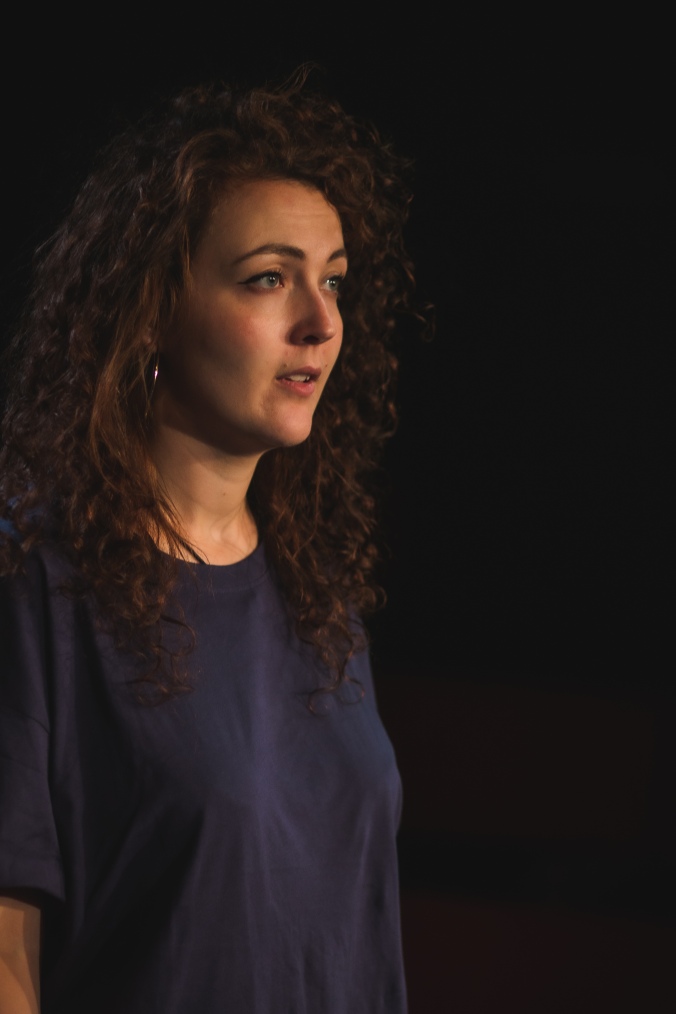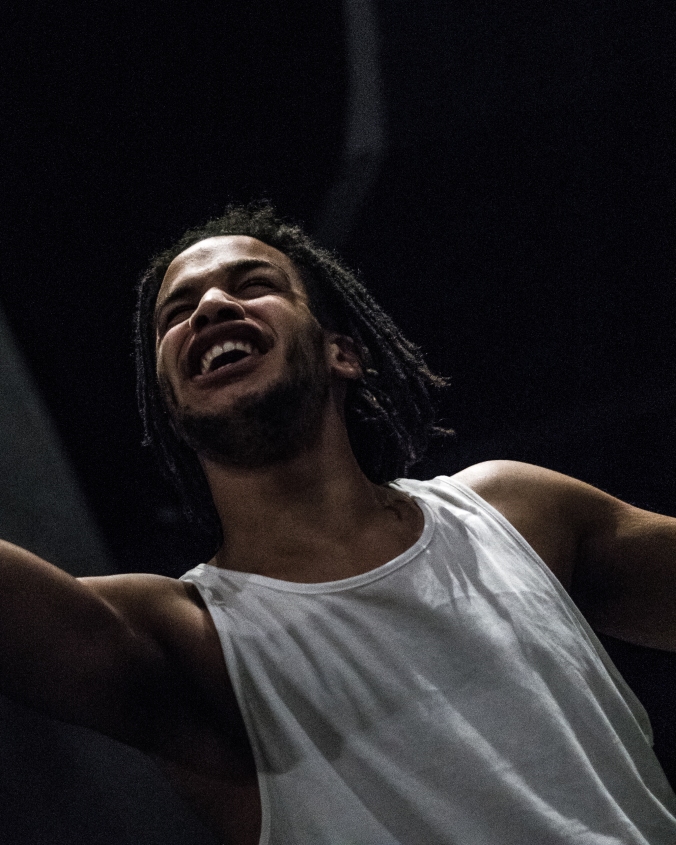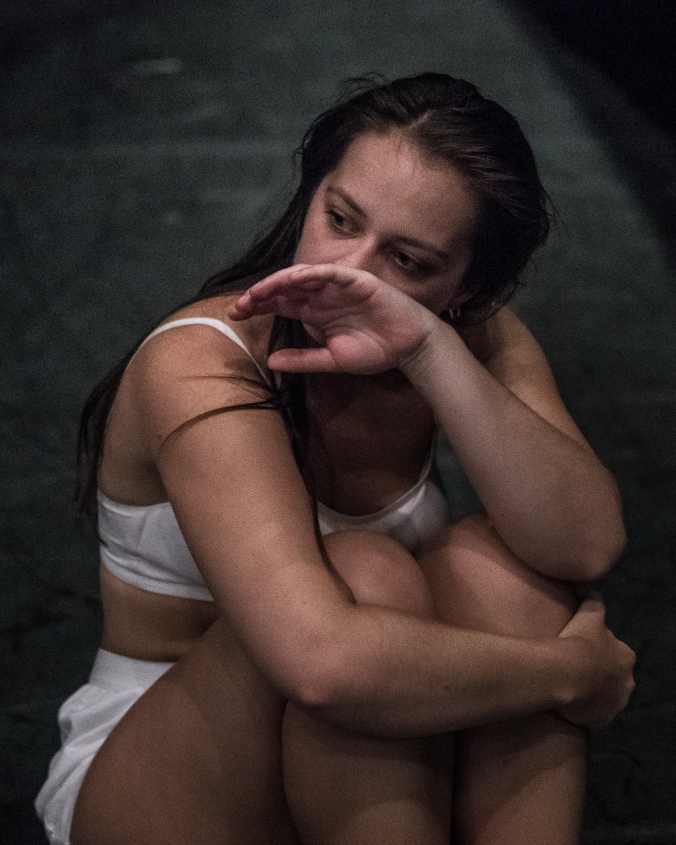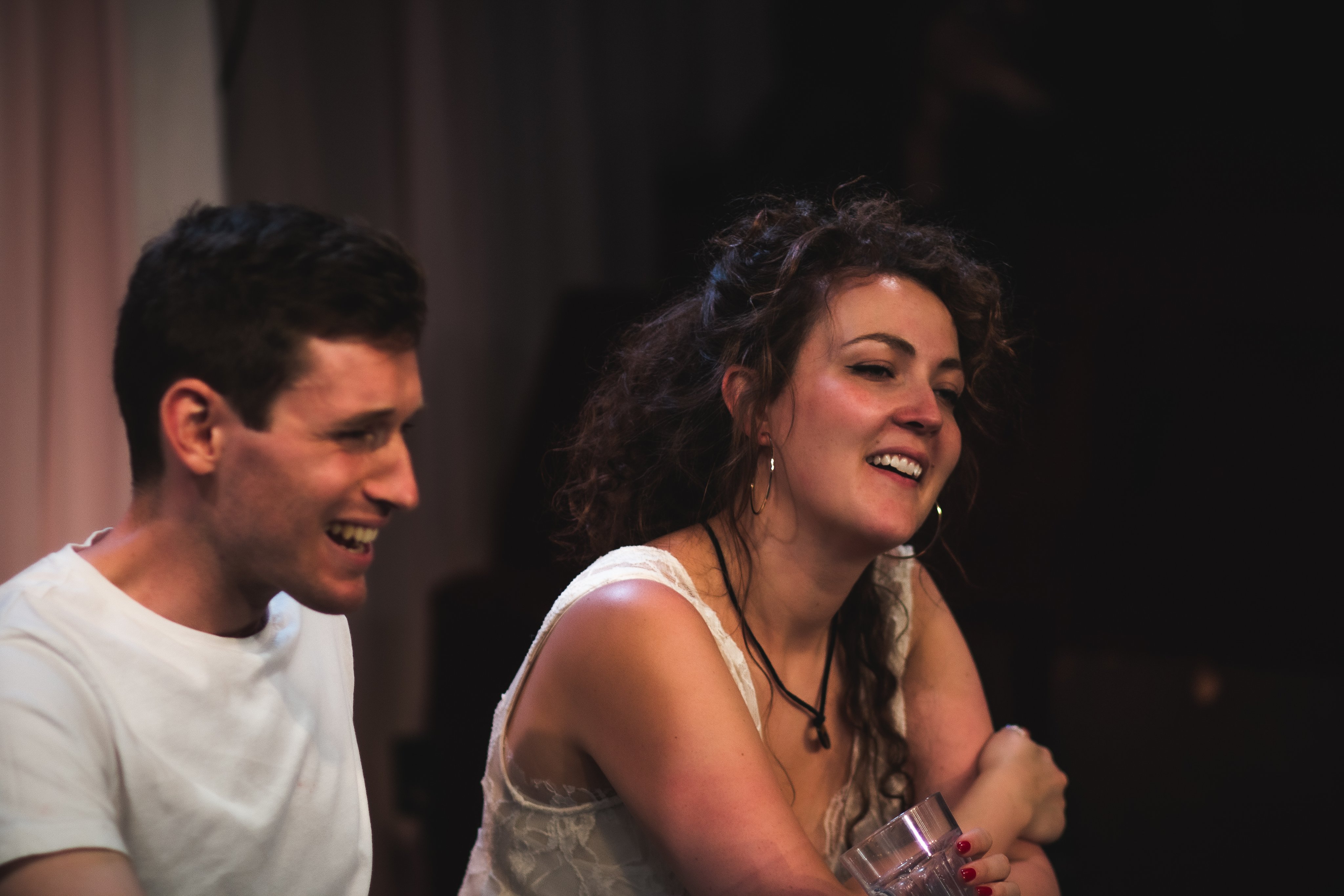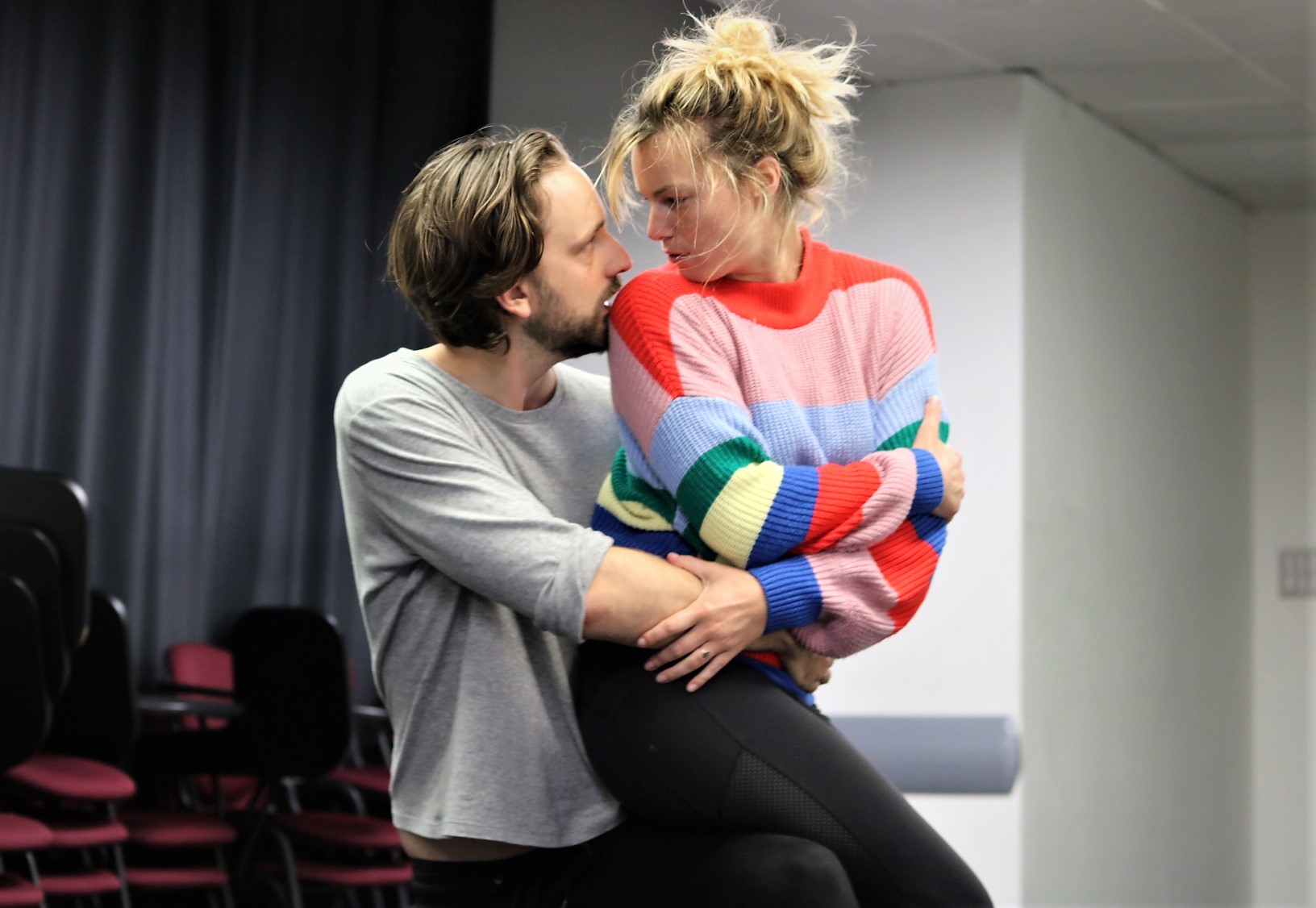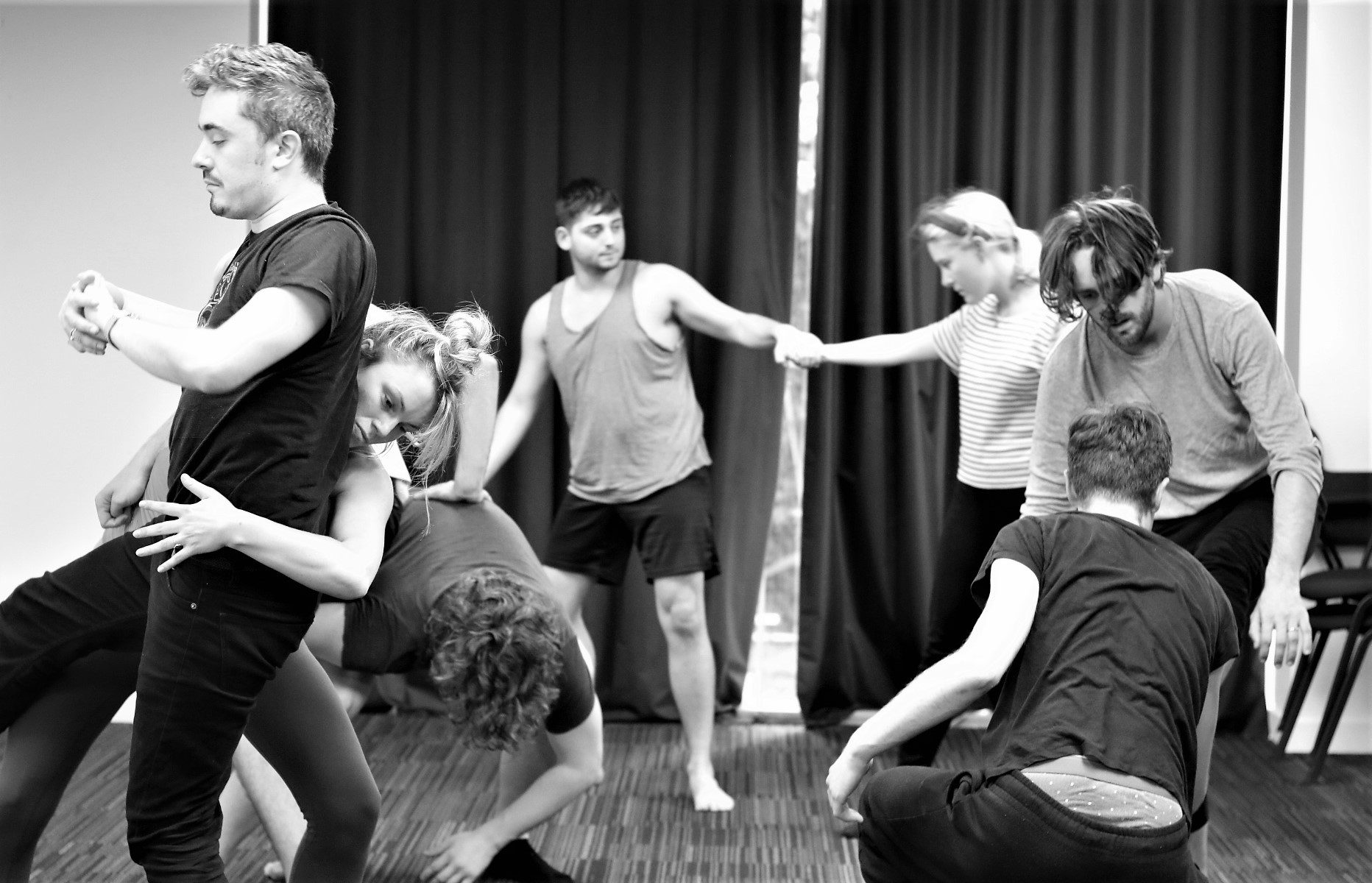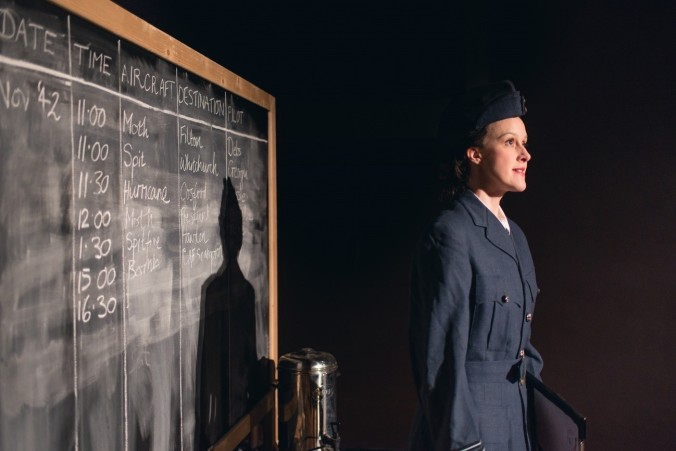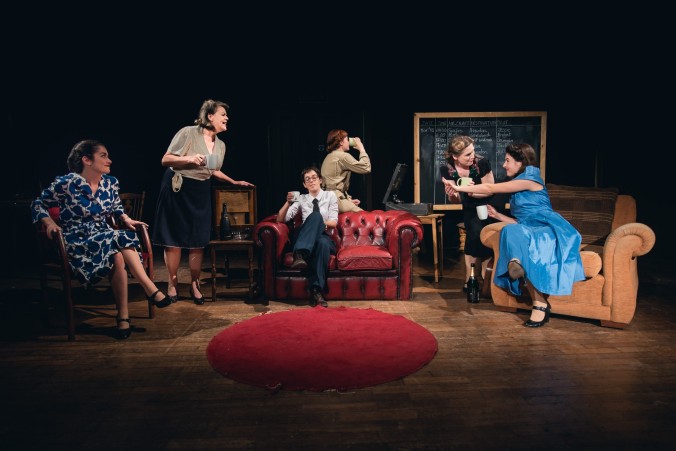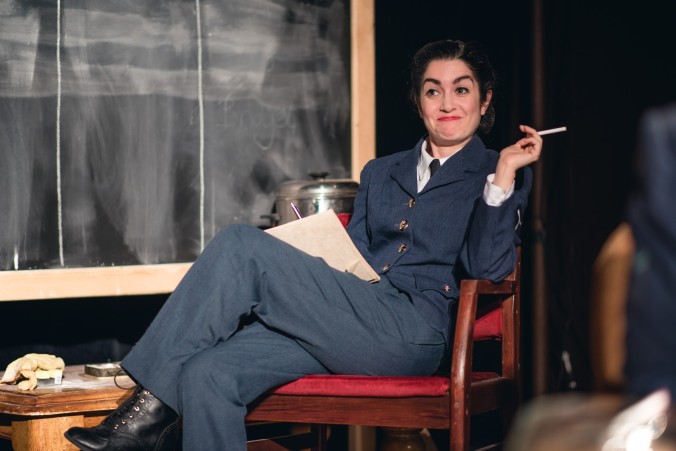Written by David Finnigan
Directed by Nic Connaughton
Produced by Pleasance Theatre and Maya Ellis
Featuring Felicity Ward, Kelly Paterniti, Bec Hill, Hannah Ellis Ryan, and Nathan Coenen
4th – 28th June 2019
The first show I saw at the downstairs Pleasance Theatre in Islington was Bismillah! An Isis Tragicomedy, a play which mixed side-splitting black comedy with controversial and complex socio-political commentary. I gave it five stars. This weekend I found myself in that space again, and once again, I was treated to a piece of theatre which had me alternately gasping with laughter and staring down the barrel of one of the biggest crises of the modern day. They sure can pick ‘em.
The majority of Kill Climate Deniers is cathartic silly satire, and very good at being that. An all-women cast of experienced Australian actors and comedians caper through the riotous tale of a terrorist attack on Parliament House during a Fleetwood Mac concert; we follow the story of Gwen Malkin, Minister for the Environment in a conservative government, and her social media advisor, Georgia Bekken. Felicity Ward – one of Australia’s biggest comedienne exports of the moment – absolutely nails the role Malkin, playing to perfection a politician out of her depth, hiding insecurity with bluster and narcissism. Kelly Paterniti as Bekken provides terrific support and counterbalance as the more level-headed advisor, pulling the politician’s strings even as she strokes her ego – except for occasional flashes of mania, centring around a hatred of bloggers (this monologue was the only time in the play that I really worried for my safety) and an encyclopaedic knowledge of 80s disco hits. Certainly quite a different role to the last I saw her in, which was the titular heroine of a Romeo and Juliet production at the Sydney Opera House!

Hannah Ellis Ryan and Bec Hill. Image Credit: Ali Wright
On the other side we have Bec Hill, another successful Aussie comedy export, as the eco-terrorist leader Catch. Combining army fatigues and gothic chic (and on that topic, kudos to Prinx Lydia, set and costume designer, for their excellent touches), she really does exude menace and chilling fanaticism. She knows that she’s on the side of the bad guys, but believes so completely in her cause that she feels the possible ends justify the means: ‘See I know we’re not right… but even if I were 99% wrong, I’d still shoot every politician for that 1% chance of changing things’. (I was very intrigued by the implications of an authorial aside revealing that, in an earlier draft, Catch was Malkin’s 11-year-old daughter via a time-travelling subplot… but I can see why this was cut.) Finally, playing a number of roles with great versatility is Hannah Ellis Ryan, who dies a few times onstage as various terrorist henchwomen, and then once with great aplomb as centre-right political commentator Beverly Ile. It is as Ile that she really shines, maintaining a smooth and smarmily bland façade while all goes her way, and the dropping the mask and letting rip in a spitting, venomous, spiteful rant about the patheticness of scientists.
Together, and to some seriously banging tunes, these women act out a story of mutual destruction grounded in fear and an inability to communicate. I think the meaning of this tale is perfectly expressed in the foreword by Julian Hobba, artistic director of Aspen Island Theatre Company, who first commissioned the project: ‘[the characters] represent two powerful and opposing political forces, pushed, by the extremity of the situation and the immovability of their positions, into a lethal death spiral… Through the eyes of this play, we are name-calling through counter-narratives while Rome burns.’

Felicity Ward and Bec Hill. Image credit: Ali Wright
There is another key aspect of this show which I’ve yet to touch on: there is another presence onstage, or seated just off to the side, in the audience. This is the author (or, as I only realised partway through, an actor standing in for him), and he often presses pause on the events onstage to provide commentary, justification, context, or the true backstory of the play’s development and verbatim reactions from climate deniers, politicians, and Andrew Bolt. These asides are often as hilarious as the gags onstage, but some provide a more serious counterweight to the semi-absurd comedy, and make astute and sobering socio-political observations. The final two monologues – addressed to climate change deniers and appraising the driving force behind their beliefs – truly blew my mind and explored the issue in a light I had never considered before.
This “Finnig” (that is, the voice of writer David Finnigan) is portrayed by Nathan Coenen, an actor of Australian origin who has been in the UK for many years. Indeed, he takes a little while to settle back into the Australian accent, sounding very British-neutral for the first scene or two, but so many Aussies (myself included) are guilty of this unconscious chameleon camouflage when in the Motherland, and by the time the play is properly underway he is able to “yeah, nah” with the best of them. It is in this voice that he explores the author’s doubts and regrets about the title and the ethical content of the play, with the benefit of hindsight as it went through a number of evolutions.
I exited Kill Climate Deniers having known that I’d seen some amazing theatre. My only qualm was – yep – the title, and the premise of violence against those we disagree with. Not because I never feel that rage and frustration, but because I enjoy having the moral high ground, and feel that the left (usually) manages to hold onto principles better than the right. However, it’s not like the play doesn’t address this, and at its heart, this play is not based in violence or hatred. It’s based in primal, abject terror of the future we are sleepwalking into; it’s raging against the powerlessness we as individuals feel when up against global crises; it’s hysterical laughter and communal catharsis in the knowledge that everyone else in the room is just as scared as you.

Bec Hill, David Coenen, and Kelly Paterniti. Image credit: Ali Wright
I’m not exaggerating in the least when I say that I could continue to write a full-length analytical analysis about this play, but I’ve been told off for my verbosity before, so I’ll wrap it up here. All I can say is that Kill Climate Deniers is intelligent, hilarious, thought-provoking, and fun, and you should go and see it. (Especially if you’re an expat from Down Under living in London – because someone in the audience needs to laugh at those Aussie-only cultural references.) (Also how fucking great is it to have an all-female cast in comedic roles that would often be given to men without a second thought?)
Tickets





Previous review: Custody by Urban Wolf @ Ovalhouse Theatre
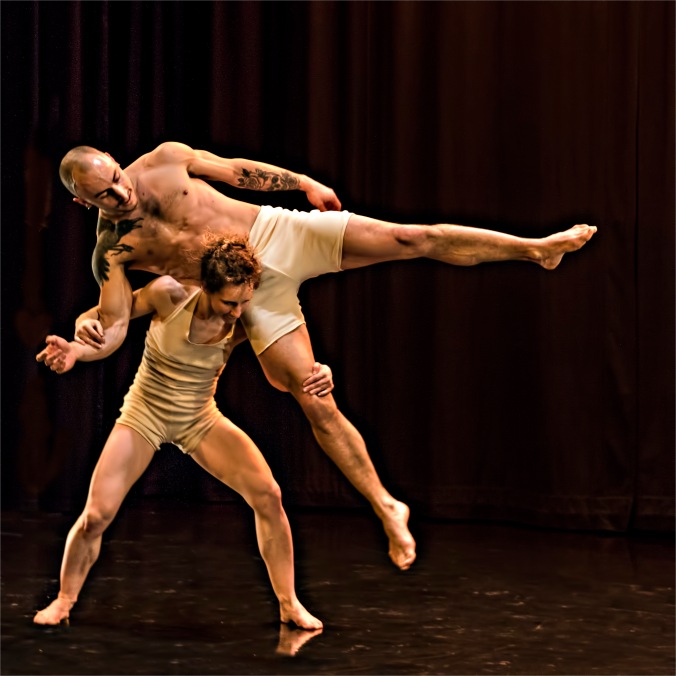
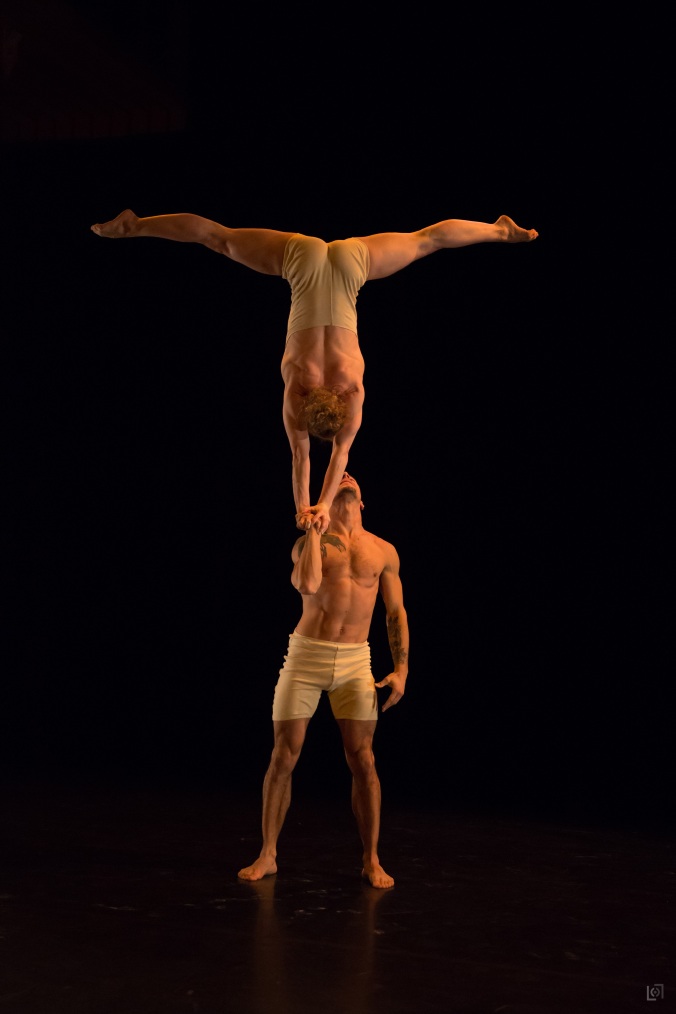
![]()
![]()
![]()
![]()
